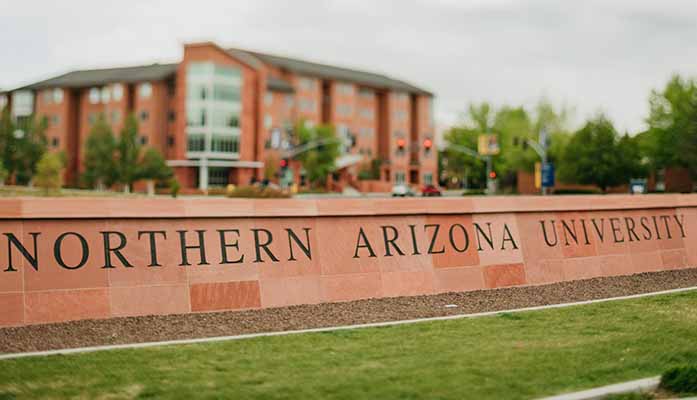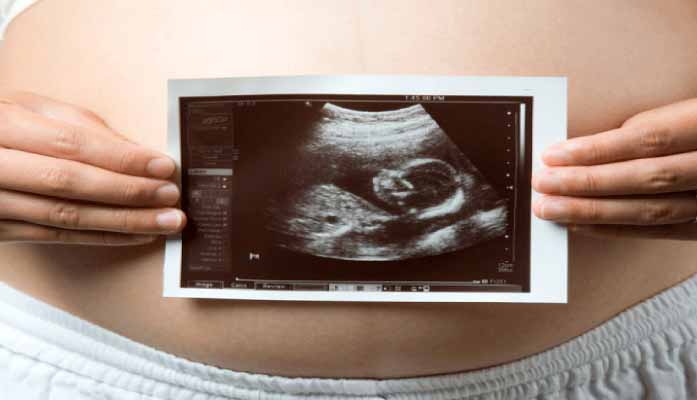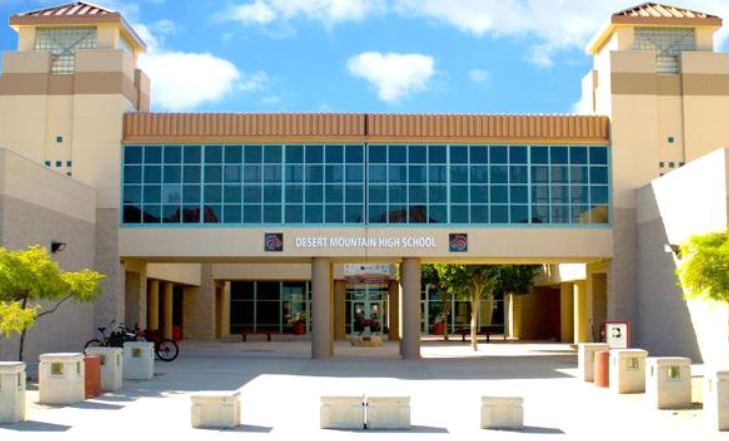
by Corinne Murdock | Feb 13, 2023 | News
By Corinne Murdock |
On Thursday, Rep. Debbie Lesko (R-AZ-08) introduced a resolution to protect women by preventing gender ideology from redefining biological sex.
Lesko was joined in the resolution by Sen. Cindy Hyde-Smith (R-MS), titling it the “Women’s Bill of Rights.” In a press release, Lesko declared that the resolution would not only protect but affirm the importance of women.
“Now more than ever, we must protect women’s rights and combat the left’s attempts to erase women,” stated Lesko.
The resolution would define “sex” as a person’s biological sex from birth, “female” as an individual whose biological reproductive system is developed to fertilize their ova, “woman” and “girl” as human females, and “man” and “boy” as human males. The resolution also would declare that “equal” doesn’t mean “same” or “identical,” and that “separate” didn’t indicate inherent inequality.
With these definitions, the resolution would require schools and all levels and divisions of government to identify subjects of data gathering as either male or female at birth, such as for public health, crime, and economic data. It also would make all policies and laws distinguishing sexes subject to intermediate constitutional scrutiny, a test employed by courts to determine the constitutionality of a statute that negatively impacts certain protected classes. Statutes pass scrutiny if they further an important government interest and employ means of accomplishing that interest that are substantially related to that interest.
Further, the resolution would warrant discrimination in certain circumstances.
“There are legitimate reasons to distinguish between the sexes with respect to athletics, prisons or other detention facilities, domestic violence shelters, rape crisis centers, locker rooms, restrooms, and other areas where biology, safety, and/or privacy are implicated,” stated the resolution.
Lesko and Hyde-Smith first introduced the resolution last May, in the 117th Congress. It was referred to the Constitution, Civil Rights, and Civil Liberties Subcommittee last November, but never made it any further. During a press conference last year, Lesko argued that the necessity of her resolution proved that the country has gone “to hell in a handbasket.”
“The world is totally upside down when I have to introduce legislation to define a woman versus a man,” said Lesko. “More and more often our colleagues on the left are trying to erase women.”
That version of the Women’s Bill of Rights was included in the Republican Study Committee (RSC) Family Policy Agenda ahead of the midterm elections. The agenda issued over 80 recommendations to better align the GOP with its goal of advancing families’ interests, focusing on child protections, increased economic power for working families, additional parental rights, increased flexibility to child care, elimination of policies discouraging family formation, incentives to work, school choice, higher education reforms, foster care and adoption reforms, and abortion abolition.
The RSC was established 50 years ago for the purpose of coordinating research efforts by conservative congressmen.
Lesko and Hyde-Smith were assisted in crafting the resolution by the Independent Women’s Law Center and Independent Women’s Voice, two related women’s advocacy organizations.
Independent Women’s Law Center Director Jennifer Braceras said that rooting out sex discrimination won’t be possible without proper definitions of biological sex.
“We can’t fight sex discrimination if we can’t agree on what it means to be a woman. And we can’t collect accurate data regarding public health, medicine, education, crime, and the economic status of women if we redefine sex to mean ‘gender identity,’” said Braceras.
Corinne Murdock is a reporter for AZ Free News. Follow her latest on Twitter, or email tips to corinne@azfreenews.com.

by Corinne Murdock | Feb 13, 2023 | Education, News
By Corinne Murdock |
Northern Arizona University (NAU) will provide free tuition regardless of income to Native Americans from Arizona tribes but requires other races to fall below a certain financial threshold to qualify. NAU President José Luis Cruz Rivera described the arrangement as a cornerstone for the university’s equity work.
“Ensuring access to an affordable, high-quality education is a key part of NAU’s vision to deliver equitable postsecondary value,” stated Cruz Rivera.
This arrangement falls under NAU’s financial aid program “Access2Excellence” (A2E) which launched last April. However, the university didn’t offer this free tuition for Arizona tribal members until last November, after NAU’s Native American Advisory Board pushed for its creation.
Initially, A2E was intended to provide tuition-free college for all students, regardless of race, if their household incomes were at or below $65,000. When A2E launched last spring, approximately 50 percent of Arizona households met that threshold.
NAU stated in a press release that the special free tuition offer for Native American students was part of its “strategic priority” to be the leading university serving Indigenous people nationwide. Ann Marie Chischilly, vice president of the Office for Native American Initiatives, said that this offering represented NAU’s commitment to prioritizing Native Americans.
“We are dedicated to being the nation’s leading institution serving the indigenous peoples and providing a clear and affordable pathway to an exceptional education,” said Chischilly.
Free tuition is one of the latest in NAU’s latest initiatives focused on uplifting Native Americans. In January, NAU pledged $10 million to prioritize Native American and Indigenous people in curriculum and recruitment efforts.
Last March, NAU launched multiple initiatives totaling $1.3 million to increase the number of both Native American and Hispanic science, technology, engineering, and math (STEM) graduates. These initiatives focus on training STEM faculty in anti-racism, revising graduate admissions processes to increase inclusivity and diversity, creating additional supports exclusively for Indigenous and Hispanic students, offering exclusive campus opportunities for Indigenous and Hispanic students’ families.
Department of Biological Sciences professor Catherine Propper predicted that these initiatives would increase anti-racist educational practices in education beyond NAU.
“In this way, we can bring about equity-oriented change in STEM fields by building leadership among faculty to contribute to institutional change, eliminate structural barriers and reduce disproportionality and systemic inequities in STEM fields,” said Propper.
Cruz Rivera asserted that greater funding and research efforts for recruitment, training, and placement on Native American and Hispanic students was an equitable necessity to spur these groups’ economic mobility.
“Together, we can propel more low-income, first-generation students and students of color to the middle-class and beyond,” said Cruz Rivera. “Support for HSIs will pave the way for less inequality, more social mobility and broader economic prosperity in America.”
In June 2021, the Arizona Department of Education (ADE) awarded NAU with $1 million to advance culturally responsive Native American pre-K-12 educators.
The A2E program goes into effect this fall. Those admitted to NAU for fall 2023 or spring 2024 semesters qualify.
Corinne Murdock is a reporter for AZ Free News. Follow her latest on Twitter, or email tips to corinne@azfreenews.com.

by Corinne Murdock | Feb 12, 2023 | News
By Corinne Murdock |
The Phoenix Open crowd reportedly booed Gov. Katie Hobbs after her attendance was announced at the tournament on Wednesday.
Eyewitness accounts say the incident occurred at the Skybox stadium located on Hole 16 on Wednesday, a day before the opening day of the Waste Management Phoenix Open. Hobbs was brought onto the green to greet the crowds in the stadium. A video posted later that day allegedly captured the incident.
Twitter users who claimed they were at the open claimed that Hobbs looked “dejected” after walking off the course.
Another user said that Hobbs attempted to wave at the crowd, but received boos instead.
The campaign team for Hobbs’ GOP opponent, Kari Lake, claimed that Hobbs was also booed at a recent Phoenix Suns game.
Lake asked social media users to send in their videos of the booing, with promises that they would give them credit and “help them go viral.”
Apparent dissatisfaction with Hobbs’ first days in office may be considered bipartisan.
The governor stood opposed to the favored pick to take over the Arizona Democratic Party (ADP) chairmanship. Hobbs endorsed Maricopa County Supervisor Steve Gallardo; he also served on her transition team. However, top Democratic leaders and officials sponsored Yolanda Bejarano, ADP’s former vice chair. Bejarano won the election last month.
Hobbs didn’t congratulate Bejarano individually following the election; rather, the governor opted to congratulate the entirety of the new ADP board.
Prior to her swearing in, Hobbs stirred up controversy when she neglected to disclose the cost and funders behind her inauguration ceremony. It wasn’t until several days after her inauguration that the nonprofit accepting donations on her behalf for the event released the names of the donors and their amounts donated.
According to Hobbs, her “Katie Hobbs Inaugural Fund” accepted $1.9 million from about 235 donors. Arizona Corporation Commission (ACC) records disputed Hobbs’ initial claim that she raised about $1.5 million from 120 donors.
The inauguration costed $207,000 — about 11 percent of total donations. This inspired questions of the purpose for the remainder of the funds as government transparency watchdogs called for investigation of whether Hobbs’ inauguration team purposefully accepted more donations than they knew were necessary.
Attorney Tim La Sota told “The Conservative Circus” that Hobbs’ use of a state website to solicit inaugural funds presented a potential legal issue.
“That’s definitely a no-no,” said La Sota. “That’s no different, hardly, than just putting a link on the governor’s official state website to her campaign account and saying, ‘Hey, you know, do you want to support me politically? Go to my campaign.’”
The inaugural fund was established as a 501(c)(4) nonprofit by Hobbs’ campaign manager, Nicole DeMont. That classification enables the funds to be used for any promotion of “social welfare,” per IRS rules. Under this classification, the remaining $1.7 million could potentially be applied to certain political efforts that advance “social welfare,” like lobbying.
Corinne Murdock is a reporter for AZ Free News. Follow her latest on Twitter, or email tips to corinne@azfreenews.com.

by Corinne Murdock | Feb 12, 2023 | News
By Corinne Murdock |
Out of the nearly 14,000 abortions performed in 2021, at least nine babies were born alive following a botched procedure.
The data comes from the Arizona Department of Health’s (AZDHS) latest report on abortions in the state for 2021. 2020 had the exact same number of babies born alive following a botched abortion.
AZDHS issued its latest report the day after the Arizona Appeals Court ruled that the state’s near-total, pre-statehood abortion ban couldn’t be used to prosecute abortionists. The court upheld the law codified last March, which allows abortions up to 15 weeks.
State reporting on botched abortions resulting in live deliveries went into effect in August 2017. That year, the state reported at least 10 abortions that resulted in the baby delivered alive between August and December 2017. In 2018, there were 12. Then in 2019, there were 15.
The number of abortions have fluctuated slightly over the years, marking a general upward trend since 2010, when there were more abortions performed that year than in any other year since 2004: over 11,400 abortions.
2010 was the year the state began tracking abortions, due to a newly passed law at the time. The all-time high for abortions on record in one year occurred in 2011, though this year came closer to meeting that record.
In 2011, there were over 14,400 abortions; 2012, over 13,300; 2013, over 13,400; 2014, about 12,900; 2015, over 12,600; 2016, 13,300; 2017, over 12,500; 2018, over 12,400; 2019, over 13,000; and in 2020, over 13,200.
99 percent of the 2021 abortions were administered to Arizonans.
The greatest demographic of women receiving abortions were aged 20 to 24 years old (nearly 31 percent), followed by 25 to 29 years old (27 percent), 30 to 34 years old (18.6 percent), 35 to 39 years old (10 percent), 18 to 19 years old (seven percent), 40 to 44 years old (three percent), and 15 to 17 years old (nearly two percent).
READ THE REPORT: 2021 ABORTIONS IN AZ
There were 19 total abortions administered to girls under the age of 15. According to AZDHS data, that rate declined by over 63 percent since 2012, and by over 11 percent since 2020. Likewise, teen girls aged 15 to 19 declined in abortion rates by nearly 16 percent since 2012, but did increase by six percent since 2020.
There were 31 abortions administered to women at or over the age of 45.
In 2021, about 15 percent of those who obtained abortions were married. That percentage has remained stagnant over the years, reaching a brief high of 17 percent in 2012 but ultimately averaging at about 14 percent. Unmarried women have generally made up 79 to 87 percent of abortion patients.
The largest portion of missing data concerned the educational status of the women receiving abortions. About 38 percent of that data was missing.
The following were the top-five clinics that performed the most abortions in 2021, in order: Camelback Family Planning, nearly 4,000; Family Planning Associates Medical Group, over 3,500; Planned Parenthood Tempe Health Center, nearly 1,600; Planned Parenthood Glendale Health Center, nearly 1,200; and Desert Star Family Planning, over 870. The state listed 17 facilities that performed abortions.
In addition to requiring abortion providers to report on botched abortions that result in a live birth, the state requires abortionists to use “all available means and medical skills [to] promote, preserve, and maintain the life” of the baby.
Only three abortions were partially or fully paid for using state monies through the Arizona Health Care Cost Containment System (AHCCCS). There weren’t any abortions paid for using state monies in 2020.
Corinne Murdock is a reporter for AZ Free News. Follow her latest on Twitter, or email tips to corinne@azfreenews.com.

by Corinne Murdock | Feb 11, 2023 | Education, News
By Corinne Murdock |
This week, Desert Mountain High School (DMHS) put on a play exploring the sexuality of kids. It’s the latest display of the school’s promotion of minors’ sexualization.
The play, “She Kills Monsters,” tells the story of a high school senior, Agnes, discovering a journal containing the sexuality-based confessions of her younger, 15-year-old sister, Tilly, who died in a car accident.
The play comes in two editions: the traditional script for adults, and a “young adventurers” script intended for minors. The DMHS newsletter and flyer advertising their rendition of the play didn’t disclose whether the school would use the traditional or “young adventurers” version. The minor-oriented script retains frequent descriptions of and innuendos to sexual behaviors along with frequent expletives. The play displays the younger sister fantasizing about lesbian relationships with various “sexy” fictional female characters from a role-playing game, Dungeons & Dragons, including a demonic, leather-clad “dominatrix,” succubuses, and an elf.
The script describes Agnes as an overwhelmingly “average,” “drab” teenager who lacks creativity and understanding for her sister, while Tilly is depicted as an adventurous, bold, creative, and wise individual.
DMHS sold the play tickets for $10 to $12 each.
In a 2020 review of the play, New York Times described the minor-oriented script as a “hot school play” for youth to enjoy.
“This is a story in which girls wield swords, queer kids are cool, and nerds rule the earth,” stated the review.
DMHS is friendly to the exploration of children’s sexuality on campus, though they’re not as friendly to the parents who question what occurs during this exploration. In 2021, AZ Free News reported how DMHS delayed responding to parental inquiries about the Gender & Sexualities Alliance (GSA) chapter on campus.
Last year, a DMHS psychology teacher, Mackenzie Onofry, taught students unapproved material on the findings of debunked sexologist Alfred Kinsey. The material declared that only four percent of men and two percent of women were exclusively heterosexual, that sexuality is a continuum, that homosexuality spans human history and is a natural part of the animal world, that sexual orientation isn’t a choice and is immutable, that conversion therapy doesn’t work, that women have more erotic plasticity (sexual interests) than men, that homosexuality is a gene location on the X chromosome, that fetal testosterone exposure causes attraction to women, and that chances of male homosexuality increase by one-third with each son born.
Onofry remains employed by the district, according to her LinkedIn page.
DMHS’ district, Scottsdale Unified School District (SUSD) is aware and supportive of the high school’s initiatives for exploring minors’ sexuality and proclivity for keeping parents in the dark. Last month, it was discovered that SUSD falsely denied the existence of a transgender support plan for nearly a year.
Last year, SUSD’s social justice professionals promoted a drag queen storytime.
That summer, SUSD unintentionally provided a parent with blank transgender patient intake forms for a Phoenix hormone and gender transition facility in response to a records request regarding communications concerning DMHS librarian and GSA Club advisor Michelle Schulke.
Earlier that year it was discovered that Schulke was behind plans for sexuality and anti-racist programming for minors. Schulke also remains employed by the district.
SUSD Superintendent Scott Menzel has defended the normalization of sexualized campuses since joining the district in 2020. In response to parents upset by kindergarten and elementary school staff members discussing gender ideology to their children without consent, Menzel issued accusations of Civil Rights violations.
“To target an individual publicly for their personal identity — in this case the individual against whom this complaint was filed does not identify as either male or female — is overt discrimination and inconsistent with state and federal law as well as school district policy,” said Menzel.
Menzel also admonished parents and community members opposed to the district’s GSA clubs, calling them “bullies.”
Corinne Murdock is a reporter for AZ Free News. Follow her latest on Twitter, or email tips to corinne@azfreenews.com.





